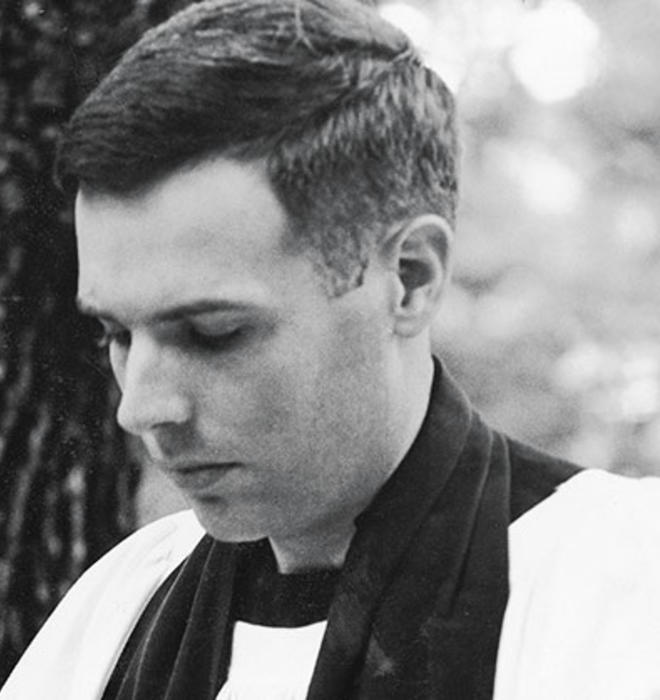
Aug. 20, 1930 – Feb. 6, 2013
Jim Evans ’52 was first and foremost a man of God, an ordained Episcopal priest who preached the gospel for nearly five decades. As a pastor, he dutifully followed denominational liturgy, performing the sacraments and guiding his congregants to salvation and a glorious afterlife. But his greatest passion — the driving force of his life — was the “Social Gospel,” the belief that the faithful should do whatever they can to redress human suffering and worldly injustice. In September 1961, this belief led Evans to become a Freedom Rider.
As a member of the Episcopal Society for Cultural and Racial Unity, an Atlanta-based group of clergymen and lay leaders, Evans felt compelled to join a “prayer pilgrimage” from New Orleans to Detroit, where the Episcopal Church’s triennial convention was scheduled to begin Sept. 17. Groups of Freedom Riders — black and white activists who deliberately sat in the “wrong” seats on buses and in terminals — had been streaming into the Deep South since early May in an effort to challenge local and state segregation laws, and Evans and 36 other “pilgrims” decided to join them in a show of solidarity. The plan was to conduct desegregation tests along the route while “penitently admitting our own involvement in the sinful system of separation and segregation at so many levels,” according to a statement put out by the participants.
Strictly speaking, this action did not constitute civil disobedience, since the U.S. Supreme Court already had ruled that legally mandated segregation in interstate travel was unconstitutional. But it was fraught with danger nonetheless. Earlier in the year, scores of Freedom Riders had been beaten by white supremacists, and hundreds had been arrested and imprisoned.
As the pastor of small congregations in St. Clair and Sullivan, small towns on the southern edge of Missouri’s “Little Dixie” region, Evans was familiar with racial segregation and discrimination. But the young priest did not encounter the full force of Jim Crow until he tried to desegregate the Trailways waiting room in Jackson, Miss.
Arrested along with 14 other Episcopal priests, Evans soon found himself in a city jail cell, where he remained for six days, leaving only for a brief trial that ended with a conviction for “breach of peace,” a fine, and a four-month sentence. On Sept. 19, after filing an appeal, Evans and all but two of his colleagues posted bail and flew to Detroit. The charges against them later were dropped.
In the years that followed, as he moved from church to church across the Midwest, he remained a Freedom Rider at heart, a generous, consistent champion of civil and human rights. When I first met him in March 2010, he was suffering from Alzheimer’s disease, which would take his life three years later. Yet as I talked with him about the Freedom Rides, I could see that the essential character of the man who had risked so much a half-century earlier was intact. Fourteen months later, I saw him again on the set of the Oprah Winfrey Show, where 180 Freedom Riders had gathered to commemorate the 50th anniversary of the Rides. I had wondered if Evans would have the mental awareness and physical strength to attend, but as the camera panned the set to open the show, there he was for all to see. Clutching his wife Margaret’s hand, but standing ramrod straight, he was a Freedom Rider to the end.
Raymond Arsenault ’69, the John Hope Franklin Professor of Southern History at the University of South Florida, St. Petersburg, is the author of Freedom Riders: 1961 and the Struggle for Racial Justice.






No responses yet